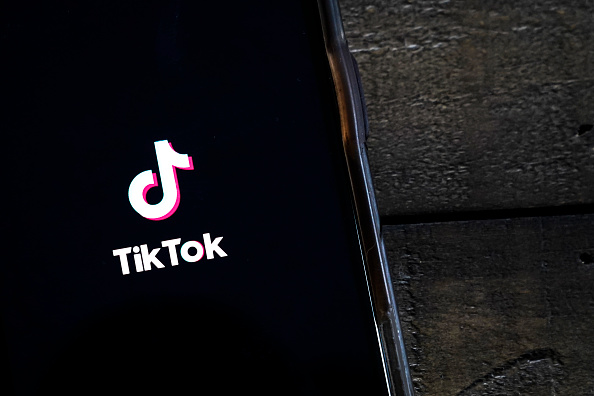The therapy industry on TikTok and Instagram is trapped in a moral maze

Would you find your therapist on TikTok? Brits are increasingly turning to social media for help for their mental health, but the space is completely unregulated, writes Elena Siniscalco
Last month, Rishi Sunak announced £150m extra funding for mental health services in the UK. Much of this was for urgent care – when people are right at the end of their tether and A&E is the only option.
For those who aren’t at a crisis point, but still struggling, social media such as TikTok as support to connect them with others, or even with therapists. At the time of writing, the #mentalhealth has 63.2bn views on TikTok. Some of these are personal struggles, others are trained professionals offering pragmatic coping strategies.
Some are well-meaning but misguided, others are opportunists.
Plushcare analysed 500 TikTok videos containing mental health advice and found that 91 per cent of the TikTokers had no formal medical qualification. Creators acted as a voice of authority, with some even offering diagnoses. “That can be really damaging to people”, says Lara Waicot, a trained therapist and coach active on TikTok, who warned social media is far too generalised to be considered medical advice.
Some of these creators, however, have also learnt to monetise the vacuum created by the paucity of publicly available mental health services in the UK. They promise to offer “the cure” to mental health problems through one-to-one or group sessions, often with little or no professional qualifications.
It’s legal, but ethically questionable.
Four years ago, Gabriella was suffering from OCD and addictions. An Instagrammer called Robert Bray promised he had the answer to “curing” OCD. “I didn’t look at whether he had any qualifications, I thought surely someone who says he can give you therapy is qualified”, she says. She bought a package of daily sessions and ended up spending thousands of pounds. Sessions were always via the phone and the two never met.
It quickly emerged that something was wrong. Robert had few of the boundaries you would expect from a therapist or a trained coach. “The calls were so inappropriate, he would ring me up at any hour or not ring at all”, she says. Robert added Gabriella to several Whatsapp groups with other clients suffering from OCD. They were encouraged to write about their fears, which Gabriella said made some feel worse. After getting into debt to pay for the sessions, Gabriella relapsed and went to rehab. Afterwards, she cut ties with OCD Recovery, Robert Bray’s company. But she claims Bray tried to reach her several times – even messaging her on other forms of social media.
Another client, Jake, had around ten sessions with Bray before realising something was off. “He’d forget things I’ve said, come up with generic advice, say things to me about my OCD which was probably about someone else. (Things like) ‘you’re the problem, you’re not doing recovery right and that’s why you’re stuck’.” He claimed some of his £200 sessions were also cut short.
Former clients of Bray claim he uses exposure and response prevention therapy (ERP), a method which relies on exposing clients to their fears in a safe setting. Bray himself has never used this terminology and has no formal training in it.
Robert Bray told City A.M. OCD Recovery provides a “sliding pay scale to help make our services affordable”. He said his clients insist they like that they “they can always book sessions easily without long wait times and we stick to appointments”. He refused to comment on any of the more specific allegations made by previous clients.
Caroline Jesper, head of professional standards at the British Association for Counselling and Psychotherapy said there’s a plethora of websites where individuals make “unsubstantiated claims about being able to cure you, which a trained therapist would not do.” For most of them, there is a Facebook group or Reddit thread where people talk about how the sessions only made them feel worse.
“There are people who put out content you can resonate with, build trust, and then they invite you in an inner circle”, says Joshua Fletcher, a psychotherapist active on social media. He says the scale of the problem is growing – he knows of dozens of people who have had a negative experience with OCD Recovery, but when you expand it to other websites, it’s hundreds.
In the UK this is legal, and City A.M. is not allegeding any wrongdoing by Robert Bray. Anyone can call themselves a therapist; there is an accreditation system for trained professionals, but it’s only voluntary. You can get a coaching certificate for less than £10 online. On some stats, only around 12 per cent of Brits know that anyone can call themselves a counsellor.
In political circles, there is little to no appetite to change the current framework. A previous consultation on healthcare professionals more broadly did not include regulations for psychotherapists. At the time, the risk was not high enough. But the ubiquity of mental health advice on social media is changing that.
According to Rosie Beacon, of the Tony Blair Institute, the proliferation of dangerous advice on mental health is unsurprising. “People miscommunicating about politics is problematic, but mental health is about personal safety and security, which is slightly more fundamental,” she said.
It might be that only a tragedy forces action.